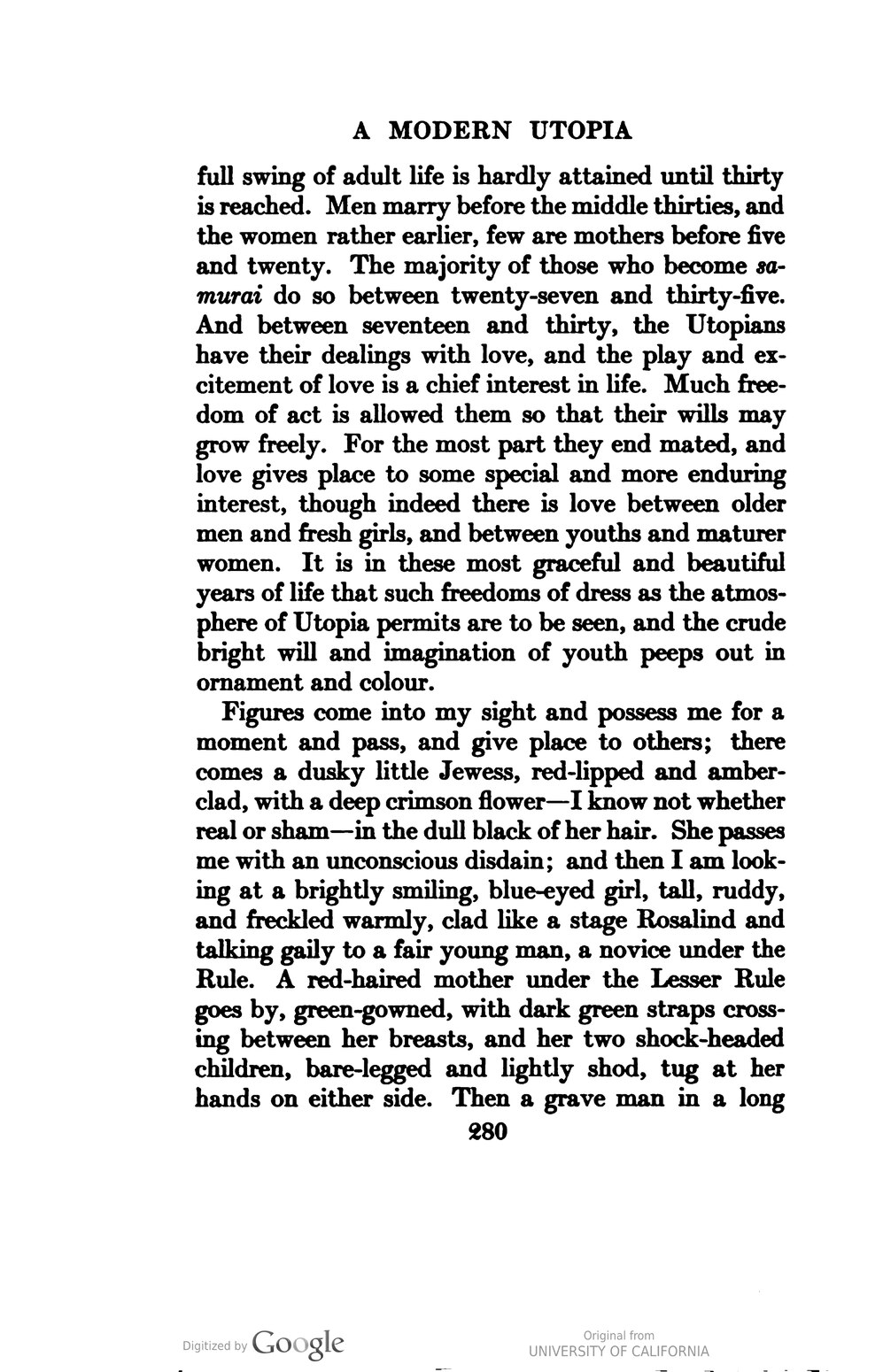A MODERN UTOPIA
full swing of adult life is hardly attained until thirty is reached. Men marry before the middle thirties, and the women rather earlier, few are mothers before five and twenty. The majority of those who become samurai do so between twenty-seven and thirty-five. And between seventeen and thirty, the Utopians have their dealings with love, and the play and excitement of love is a chief interest in life. Much freedom of act is allowed them so that their wills may grow freely. For the most part they end mated, and love gives place to some special and more enduring interest, though indeed there is love between older men and fresh girls, and between youths and maturer women. It is in these most graceful and beautiful years of life that such freedoms of dress as the atmosphere of Utopia permits are to be seen, and the crude bright will and imagination of youth peeps out in ornament and colour.
Figures come into my sight and possess me for a moment and pass, and give place to others; there comes a dusky little Jewess, red-lipped and amber-clad, with a deep crimson flower—I know not whether real or sham—in the dull black of her hair. She passes me with an unconscious disdain; and then I am looking at a brightly smiling, blue-eyed girl, tall, ruddy, and freckled warmly, clad like a stage Rosalind and talking gaily to a fair young man, a novice under the Rule. A red-haired mother under the Lesser Rule goes by, green-gowned, with dark green straps crossing between her breasts, and her two shock-headed children, bare-legged and lightly shod, tug at her hands on either side. Then a grave man in a long
280
